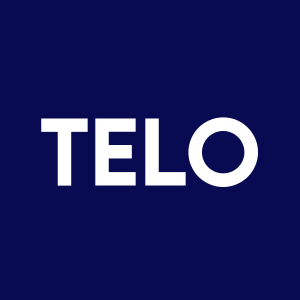Telomir Pharmaceuticals Announces In Vitro Data Showing Telomir-1 Inhibits Key Epigenetic Enzymes Driving Tumor Growth, Autoimmune Disease, Neurodegeneration, and Metabolic Dysfunction
Rhea-AI Summary
Telomir Pharmaceuticals (NASDAQ:TELO) has announced groundbreaking preclinical data showing that its lead compound Telomir-1 effectively inhibits three key histone demethylase enzymes: JMJD3, FBXL10, and FBXL11. These enzymes are crucial regulators of gene expression and are implicated in various diseases.
The study, conducted with Eurofins Discovery, demonstrates Telomir-1's potential to treat multiple conditions through epigenetic modulation, including cancer, autoimmune disorders, neurodegeneration, and metabolic dysfunction. The compound has shown superior performance compared to Paclitaxel and Rapamycin in preclinical cancer models, particularly in reactivating tumor suppressor genes.
The company is advancing Telomir-1's development and plans to finalize its first IND-enabling program, marking a significant step toward clinical trials.
Positive
- Discovery of Telomir-1's ability to inhibit three previously 'undruggable' histone demethylase enzymes
- Superior performance compared to Paclitaxel and Rapamycin in preclinical cancer models
- Broad therapeutic potential across multiple high-value disease areas
- Successful reactivation of key tumor suppressor genes in PC3 xenograft studies
Negative
- Still in preclinical stage with no human trial data yet
- Requires further validation studies to confirm mechanism of action
- Complex mechanism of action may present regulatory challenges
- Multiple competing therapeutic areas could complicate development strategy
News Market Reaction 13 Alerts
On the day this news was published, TELO declined 9.24%, reflecting a notable negative market reaction. Our momentum scanner triggered 13 alerts that day, indicating notable trading interest and price volatility. This price movement removed approximately $5M from the company's valuation, bringing the market cap to $50M at that time.
Data tracked by StockTitan Argus on the day of publication.
New data from Eurofins Discovery show that Telomir-1 blocks enzymes that drive disease by turning off critical genes-highlighting its potential to treat cancer, autoimmune conditions, neurodegeneration, and metabolic disorders through epigenetic modulation.
MIAMI, FL / ACCESS Newswire / August 7, 2025 / Telomir Pharmaceuticals, Inc. (NASDAQ:TELO), a preclinical-stage biotechnology company developing therapies that target the underlying mechanisms of aging and age-related diseases, today announced new preclinical data revealing that Telomir-1 potently inhibits three key histone demethylase enzymes-JMJD3, FBXL10, and FBXL11-that regulate gene expression through epigenetic mechanisms. These enzymes are known to influence tumor progression, immune response, metabolic function, and neuroinflammation.
The study, conducted in collaboration with Eurofins Discovery, provides further clarity on Telomir-1's mechanism of action and supports its continued development as a disease-modifying candidate across multiple therapeutic areas. Histone demethylases are upstream regulators of epigenetic silencing and activation. Overactivation of these enzymes can result from genetic amplification, chronic inflammation, or stress signals from the tumor microenvironment. These factors can lead to persistent gene silencing or inappropriate activation of disease-driving genes-contributing directly to tumor growth, immune dysfunction, metabolic imbalance, and neuroinflammation.
Key Epigenetic Targets Inhibited by Telomir-1:
FBXL11 (KDM2A)
A key regulator of gene expression, FBXL11 is overactive in several major cancers-including lung, gastric, and ovarian-where it helps tumors grow and avoid immune detection. It has also been linked to conditions like autism and impaired glucose control, highlighting its broader role in disease.FBXL10 (KDM2B)
A well-known driver of aggressive cancers like leukemia, breast, and pancreatic, FBXL10 enables tumors to resist treatment and maintain stem-like characteristics that fuel growth and recurrence. It also plays a role in metabolic and inflammatory pathways, making it a high-value target for therapies aiming to disrupt the root mechanisms of disease.JMJD3 (KDM6B)
A central regulator of inflammation and tumor progression, JMJD3 is overexpressed in several aggressive cancers-including prostate, glioma, and ovarian-where it promotes metastasis and immune dysfunction. It also plays a key role in chronic inflammatory, auto-immune and neurodegenerative diseases like lupus and Alzheimer's, through activation of cytokines such as IL-6 and IL-4, making it a high-priority epigenetic target.
These three targets are among the most validated histone demethylases in disease biology but have remained largely undruggable until now. Telomir-1's ability to inhibit all three reinforces its potential as a broadly applicable therapeutic candidate.
"This may be one of the most important mechanistic discoveries in Telomir-1's development," said Erez Aminov, CEO of Telomir. "If confirmed through further studies, it could position Telomir-1 as a breakthrough in the effort to address the root causes of age-related diseases."
"Targeting histone demethylases has long been considered undruggable," said Dr. Itzchak Angel, Chief Scientific Advisor at Telomir. "These findings demonstrate that Telomir-1 can modulate epigenetic machinery in several distinct, but functionally related sites that can work in concert to achieve synergic effects. It opens new therapeutic avenues for diseases where gene silencing drives pathology."
Broad Therapeutic Potential of Telomir-1
Cancer: By reactivating tumor suppressor genes and silencing cancer-driving genes like c-Myc and CDK6, Telomir-1 may help slow tumor growth, improve treatment response, and complement both chemotherapy and immunotherapy strategies.
Inflammatory & Autoimmune Disorders: Telomir-1 may reduce overactive immune responses by turning down key inflammatory signals, with possible applications in conditions like lupus, rheumatoid arthritis, and other autoimmune diseases.
Neurodegeneration & Neurodevelopment: By restoring balance to brain-related gene networks, Telomir-1 could impact disorders such as Alzheimer's disease and autism, where inflammation and gene misregulation play a role.
Metabolic Dysfunction: Telomir-1's ability to influence genes involved in fat storage, insulin response, and glucose control suggests potential in treating diseases like type 2 diabetes.
By targeting this epigenetic machinery-including histone demethylation and associated DNA methylation pathways-Telomir-1 may unlock therapeutic benefits across diseases marked by gene silencing.
Advancing Toward the Clinic
These new data build upon previously reported findings demonstrating that Telomir-1 reverses epigenetic gene silencing in aggressive prostate cancer models, specifically reactivating key tumor suppressors like STAT1 and TMS1 in PC3 xenograft studies. In head-to-head preclinical comparisons, Telomir-1 outperformed both Paclitaxel (a standard chemotherapy) and Rapamycin in reactivating STAT1-delivering more complete demethylation and stronger expression of this critical tumor suppressor gene.
These findings provide functional validation of Telomir-1's mechanism and reinforce its potential to complement or surpass existing treatment options in epigenetically driven cancers. The company is continuing preclinical development of Telomir-1 across oncology and other high-burden indications, with plans to finalize its first IND-enabling program.
For more information, visit www.telomirpharma.com
Cautionary Note Regarding Forward-Looking Statements
This press release, statements of Telomir's management or advisors related thereto, and the statements contained in the news story linked in this release contain "forward-looking statements," which are statements other than historical facts made pursuant to the safe harbor provisions of Section 27A of the Securities Act of 1933, as amended, and Section 21E of the Securities Exchange Act of 1934, as amended. These risks and uncertainties include, but are not limited to, the potential use of the data from our studies, our ability to develop and commercialize Telomir-1 for specific indications, and the safety of Telomir-1.
Any forward-looking statements in this press release are based on Telomir's current expectations, estimates and projections only as of the date of this release. These and other risks concerning Telomir's programs and operations are described in additional detail in its Annual Report on Form 10-K for the fiscal year ended December 31, 2024, which are on file with the SEC and available at www.sec.gov. Telomir explicitly disclaims any obligation to update any forward-looking statements except to the extent required by law.
Contact Information
Helga Moya
info@telomirpharma.com
(786) 396-6723
SOURCE: Telomir Pharmaceuticals, Inc
View the original press release on ACCESS Newswire







